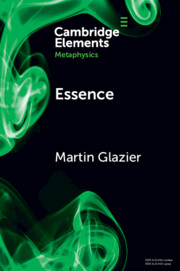Element contents
Essence
Published online by Cambridge University Press: 11 November 2022
Summary
- Type
- Element
- Information
- Series: Elements in MetaphysicsOnline ISBN: 9781108935494Publisher: Cambridge University PressPrint publication: 01 December 2022
References
- 15
- Cited by

